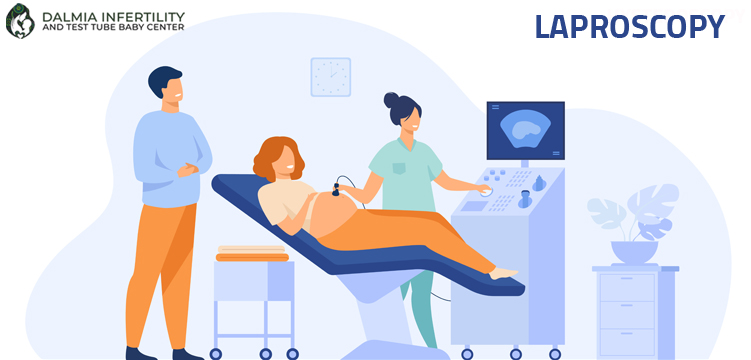
Laparoscopy is a type of surgical procedure that is done to examine the reproductive organs of a female and identify the problems or abnormalities and sometimes also treat them.
Laparoscopy is performed through a very small incision and is also known as ‘minimal access’ surgery. It is done under general anaesthesia.
A small incision is given in the abdomen in laparoscopy through which a slender tube with a light at its end called the laparoscope (endoscope) is introduced inside the abdominal cavity. Any suspected tissue can be taken for biopsy and even repairs can be done (operative laparoscopy).
Problems for which laparoscopy is done :
Laparoscopy can be used to identify various conditions of female reproductive organs-
- Conditions involving ovaries - Ovarian cysts or tumours
- Conditions of fallopian tubes - like blockage of tubes due to diseases like TB, for ligating the tubes as a family planning measure.
- Conditions involving uteri - like fibroids, uterine septum and polyps
- Conditions involving pelvis - like pelvic adhesions, pelvic inflammatory diseases, pelvic abscess etc. Endometriosis.
- Endometriosis
- Unexplained infertility
Our fertility expert at Dalmia Infertility Centre, Gwalior Dr Pratishtha Dalmia advises laparoscopic surgery to diagnose the cause of infertility.
Complications of Laparoscopy
Skin irritation and infection of the urinary bladder are the common complications of laparoscopy. However, more serious complications are rare.
